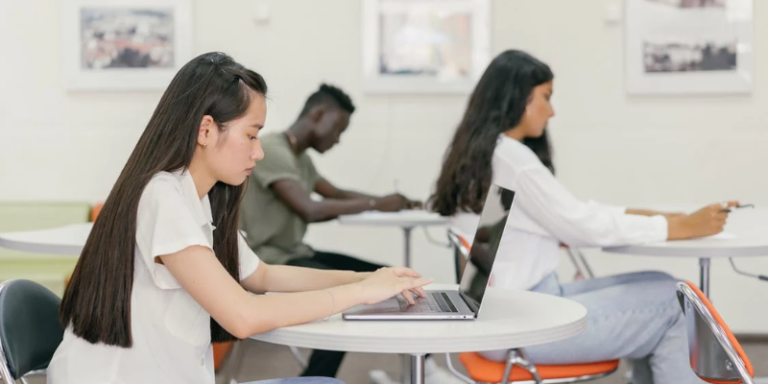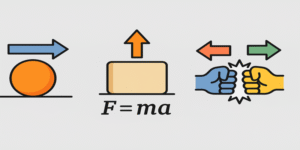Embarking on an academic journey requires mastering a diverse set of skills to ensure success. From developing effective study skills to honing critical thinking abilities, students must equip themselves with a broad toolkit to navigate their academic responsibilities.
Essential Skills Crucial for Academic Achievement are Outlined Below.
1.0 English for Academic Purpose
English for Academic Purpose aims to prepare students for the linguistic and communicative demands of academic environments, whether they are non-native English speakers or native speakers seeking to enhance their academic proficiency (University of Cambridge, 2024). This involves understanding academic vocabulary, mastering complex grammatical structures, and developing the ability to articulate ideas clearly and effectively in both written and spoken forms (British Council, 2024).
2.0 Reading Skills
Academic reading requires the ability to comprehend and critically analyse complex texts. This involves skimming for main ideas, scanning for specific information, and engaging in detailed reading to fully understand and interpret the material (University of Oxford, 2024).
3.0 Listening Skills
Active listening is critical in academic settings, particularly during lectures and seminars. It involves not just hearing but understanding and processing the information being presented. Effective listening skills help in retaining information and engaging in meaningful discussions (Julia, 2010).
4.0 Note-making Skills
Effective note-making is a strategic skill that enhances learning and retention. It involves summarising information, highlighting key points, and organising notes in a way that makes them useful for review and study. Techniques like mind mapping and the Cornell Method can be particularly helpful (Cornell University, 2024).
5.0 Research Skills
Research skills are essential for sourcing and evaluating information. This includes the ability to use academic databases, conduct literature reviews, and critically assess the credibility and relevance of sources. Strong research skills underpin successful assignment writing and projects (University of California, Berkeley, 2024).
6.0 Critical Thinking
Critical thinking involves analysing information objectively and making reasoned judgments. This skill is essential for academic work as it enables students to evaluate arguments, identify biases, and develop well-founded conclusions (Meyer, 2023).
7.0 Citations and Referencing
Proper referencing is crucial to academic integrity. Students must be familiar with various citation and referencing styles (e.g., Harvard, APA, MLA, Chicago) as appropriate to their discipline of study and understand how to cite sources correctly to avoid plagiarism. This involves giving appropriate credit to the original authors and ensuring that all borrowed ideas are properly documented (Pears & Shields. 2019).
8.0 Assignment Writing
Writing assignments is a core academic task that requires clear and structured presentation of ideas. This involves adhering to formatting guidelines, developing coherent arguments, and supporting them with evidence. Good writing skills also encompass editing and proofreading to ensure clarity and accuracy (Purdue University, 2024).
9.0 Understanding Turnitin
Turnitin is a tool used to detect plagiarism and ensure originality in academic work. Students should understand how to use Turnitin to check their work before submission, ensuring that they adhere to academic standards and avoid unintentional plagiarism (Langhoff, 2020).
Mastering these skills not only enhances academic performance but also prepares students for professional success. By developing a comprehensive skill set, students can navigate their academic journey with confidence and competence.
10.0 Maths Skills
Mathematical skills are essential across various disciplines. Students need to be comfortable with fundamental concepts and be able to apply mathematical reasoning to solve problems. This includes proficiency in basic arithmetic, algebra, statistics, and more advanced topics as required by their field of study (Khan Academy, 2024).
11.0 Presentation Skills
Effective presentation skills are essential for communicating ideas clearly and confidently. This includes organising content logically, using visual aids effectively, and engaging the audience. Practice and preparation are key to delivering impactful presentations (Reynolds, 2008).
12.0 Exam Techniques
Successful exam performance requires strategic preparation and test-taking skills. This includes understanding the format of exams, practising past papers, and developing techniques for managing time during the exam. Staying calm and focused is also crucial (O’Brien, 2013).
13.0 Time Management
Good time management is critical to balancing the demands of academic life. This involves prioritising tasks, creating schedules, and avoiding procrastination. Effective time management enables students to meet deadlines and reduce stress (Tracy, 2007).
14.0 Managing Stress
Academic life can be stressful, and managing stress is vital for maintaining mental health and academic performance. Techniques such as mindfulness, regular exercise, and seeking support when needed can help students cope with stress (Chatterjee, 2018).
15.0 Learning Styles
Understanding one’s learning style can enhance study effectiveness. Whether a student is a visual, auditory, reading/writing, or kinaesthetic learner, tailoring study methods to suit their preferred style can improve comprehension and retention (Prashnig, 2004).
16.0 Teamwork
Collaborative skills are crucial for group projects and discussions. Effective teamwork involves clear communication, active listening, and the ability to work constructively with others. It also requires an understanding of group dynamics and conflict resolution (West, 2012).
References:
British Council (2024) “English for Academic Purposes.” [Online]. Available at: https://www.britishcouncil.org/english. [Accessed on 18 May 2024].
Chatterjee, R. (2018) The Stress Solution: The 4 Steps to a Calmer, Happier, Healthier You. London: Penguin Life.
Cornell University (2024) “Note-Taking Strategies.” [Online]. Available at: https://lsc.cornell.edu/how-to-study/taking-notes/cornell-note-taking-system/. [Accessed on 18 May 2024].
Harvard University (2024) “Dissertations and Theses.” [Online]. Available at: https://guides.library.harvard.edu/c.php?g=310256&p=2078076. [Accessed on 18 May 2024].
Julia, T. W. (2010) Interpersonal Communication: Everyday Encounters. 6th edition. Wadsworth.
Khan Academy (2024) “Math Skills for College Readiness.” [Online]. Available at: https://www.khanacademy.org/. [Accessed on 18 May 2024].
Langhoff, C. (2020) How to Avoid Plagiarism and Increase Creativity. [e-book] Amazon. Available at: https://www.amazon.co.uk/How-Avoid-Plagiarism-Increase-Creativity-ebook/dp/B08RXX4918. [Accessed 18 May 2024].
Meyer, P.I. (2023) The 4 Pillars of Critical Thinking: 103 Techniques & Hacks to Improve Your Work and Personal Life by Mastering Mental Skills. Analyze Situations Better and Reason Well by Detecting Logical Fallacies. Mind Mentor.
O’Brien, D. (2013) How to Pass Exams: Accelerate Your Learning, Memorise Key Facts, Revise Effectively. London: Watkins Publishing.
Pears, R., & Shields, G. (2019) Cite Them Right: The Essential Referencing Guide. Palgrave Macmillan.
Prashnig, B. (2004) Learning Styles in Action. London: Network Educational Press.
Purdue University (2024) “The Writing Process.” [Online]. Available at: https://owl.purdue.edu/owl/multilingual/multilingual_students/key_concepts_for_writing_in_north_american_colleges/stages_of_the_writing_process.html. [Accessed on 18 May 2024].
Reynolds, G. (2008) Presentation Zen: Simple Ideas on Presentation Design and Delivery. Berkeley, CA: New Riders.
Tracy, B. (2007) Eat That Frog!: 21 Great Ways to Stop Procrastinating and Get More Done in Less Time. 2nd ed. San Francisco, CA: Berrett-Koehler Publishers.
University of California, Berkeley (2024) “Research Skills.” [Online]. Available at: https://www.lib.berkeley.edu/research/teach-learn/level-up. [Accessed on 18 May 2024].
University of Cambridge (2024) “English Language Requirement.” [Online]. Available at: https://www.ice.cam.ac.uk/info/english-language-requirements-undergraduate-and-postgraduate-certificates-diplomas-advanced. [Accessed on 18 May 2024].
University of Oxford (2024) “Reading, note-taking and library skills.” [Online]. Available at: https://www.ox.ac.uk/students/academic/guidance/skills/research. [Accessed on 18 May 2024].
West, M.A. (2012) Effective Teamwork: Practical Lessons from Organizational Research. 3rd ed. Oxford: Wiley-Blackwell.









